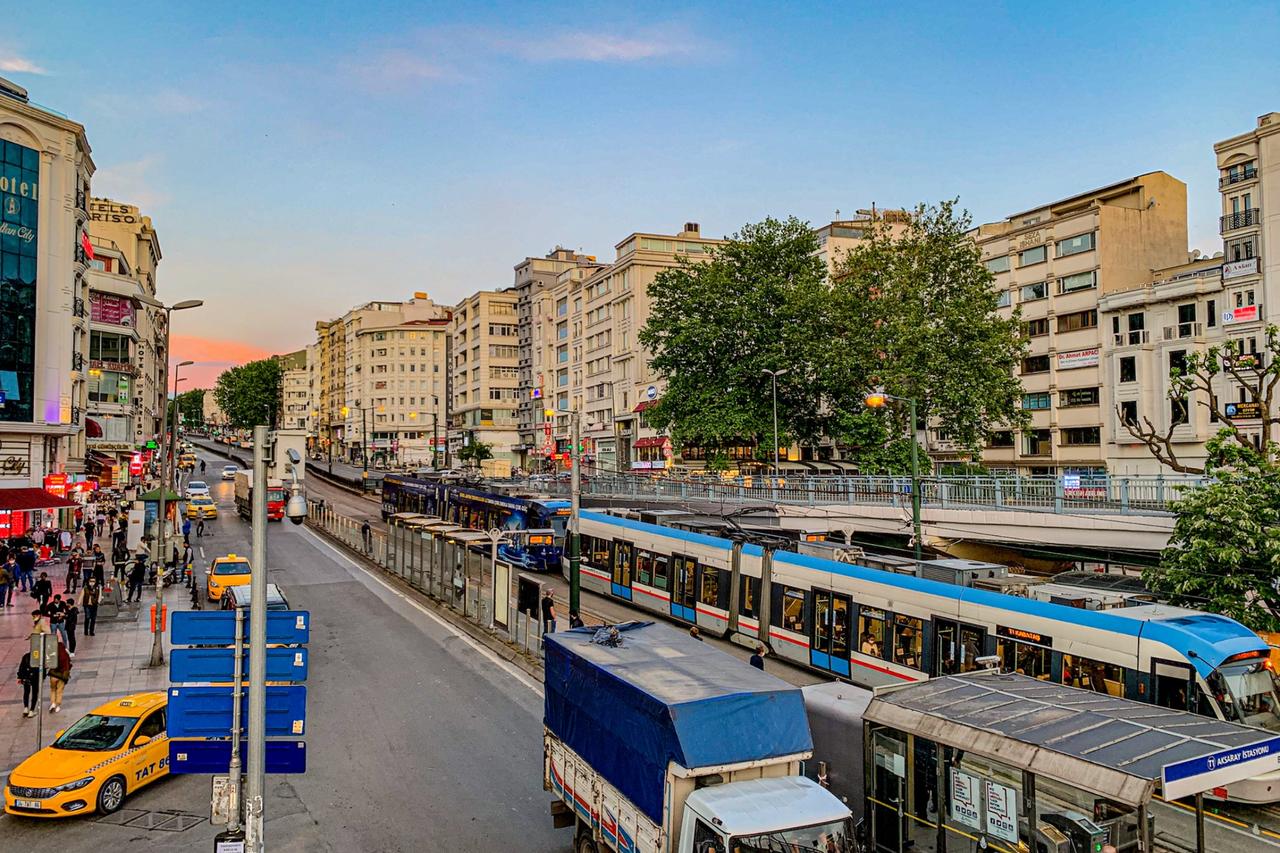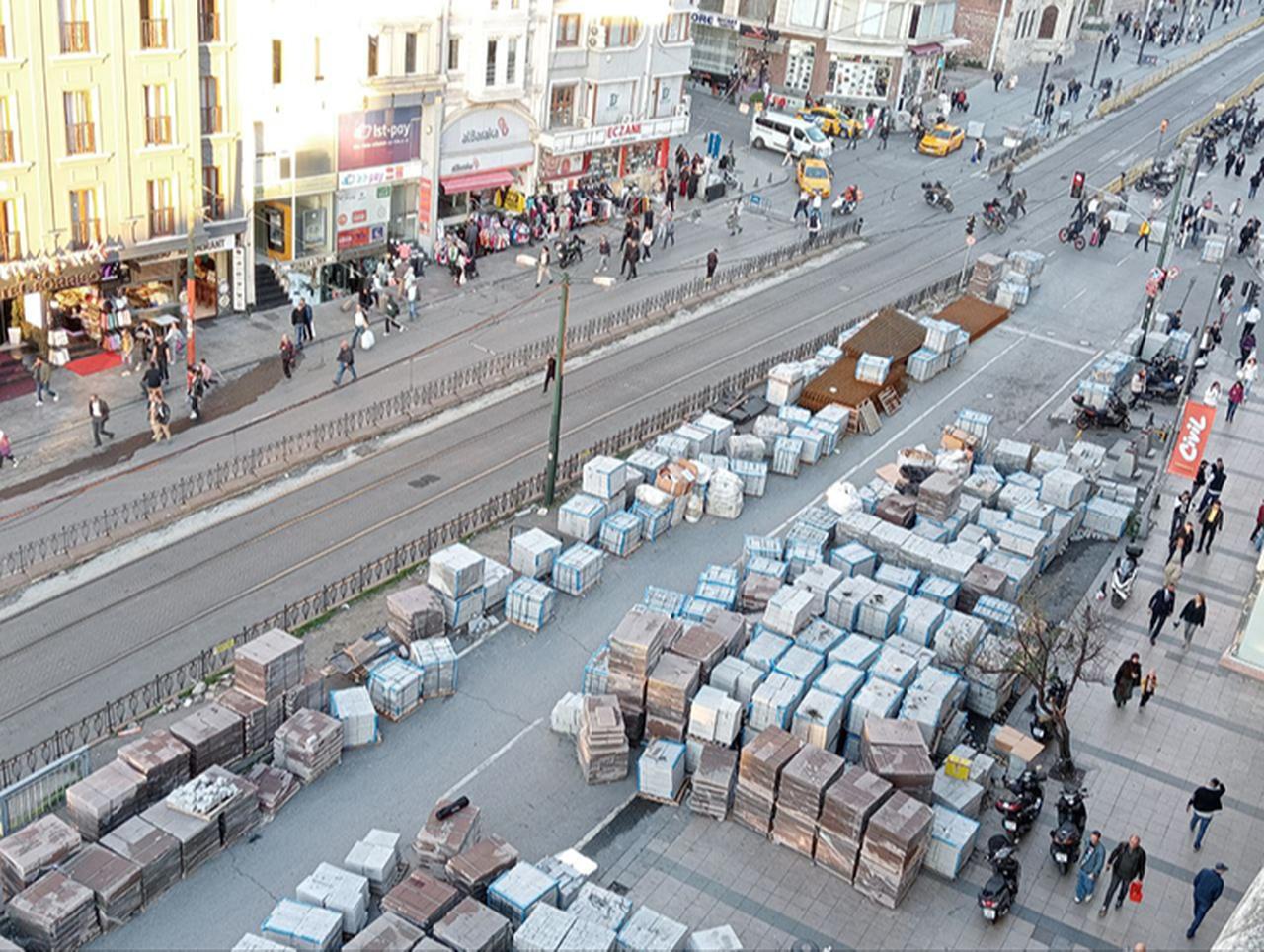
Over the last years, Istanbul’s touristic Laleli district has operated as a dense, fast-moving commercial hub shaped by suitcases, cash counters and multilingual bargaining.
While its many storefronts sell textiles and luggage, the neighborhood’s activity has flowed through an extensive informal financial network linking Türkiye to Russia, Central Asia and North Africa. Within this system, licensed and unlicensed money handlers facilitated payments for exporters who preferred to avoid formal banking channels.
Last month, the structure began unraveling after Istanbul police carried out a major operation targeting alleged money laundering activities amounting to ₺50 billion (approx. $1.2 billion).
The action centered on a company called Tac Doviz, an exchange office, widely known in the area as the leading intermediary for off-the-books transactions.
The operation was officially framed as a criminal investigation, but many in the district view it as a deeper structural rupture and cleaning that could reshape Laleli’s economic culture.
The mentioned company had long served as a central actor in a system where real sales values rarely matched official invoices and where payments for goods shipped abroad often returned through informal routes.
The firm became a preferred node for handling funds quickly, discreetly, and without questioning their origin. For many textile producers, the arrangement filled a gap that formal institutions were unwilling to serve.
Local business owners describe a daily rhythm where large sums quietly changed hands, unseen by banks. The system relied on verbal trust, commission-based transfers, and motorcycle couriers carrying hundreds of thousands of dollars as casually as ordinary parcels.
Behind Laleli’s visible retail showrooms lies an infrastructure built to handle large volumes of cash. Locals describe backroom vaults, reinforced storage areas, and multiple layers of off-the-books accounting that allowed millions to move daily without appearing in formal records.
The recent operation reportedly required days of counting by investigative teams, underscoring the scale of the financial flows involved.
For years, the state maintained a cautious balance by monitoring the district but avoiding full intervention. The parallel economy generated liquidity and supported small exporters, even as it contributed to substantial tax losses.
This coexistence allowed Laleli to flourish as both a legitimate commercial center and an unofficial settlement point for international payments.
While official figures on the total seized remain limited, investigators have noted irregularities across multiple firms. Authorities say that some companies conducted around 600,000 transactions through point-of-sale devices despite having no business activities to justify such volume, reaching nearly ₺50 billion in processed payments.

The upheaval has revived memories of Laleli’s earlier transformations. After the collapse of the Soviet Union, the district became a bridge between Türkiye and newly independent states across Eastern Europe and Central Asia.
Tens of thousands of shuttle traders helped turn the area into an informal export zone, supplying goods to markets that lacked established commercial links in the aftermath of the end of the Cold War.
Despite the economic crises in 2001, the global financial turbulence of 2008, and Russia’s downturn after 2014, Laleli adapted repeatedly.
Traders embraced new customer networks, digital ordering tools, and flexible production arrangements. According to local media reports, many in the district believe this resilience will continue, but the current investigation represents a more fundamental challenge than past economic shocks.
Older merchants often assert that Laleli can withstand disruption, but this time the concern is not only about market demand or currency fluctuations.
The current inquiry questions the very mechanisms that enabled the district’s informal model to survive for decades.
The most significant revelations emerged from companies implicated alongside Tac Exchange. One firm, operating under the name Laleli Altin Ticareti, reportedly recorded $155 million in incoming funds and $107 million in POS transactions. Investigators found 472 fraudulent passports associated with the company, raising further concerns about the network’s international dimensions.
A key element of the investigation involves testimony from confidential witnesses. According to these accounts, the scheme was coordinated through select currency exchanges in the district.
POS devices were allegedly shipped physically to Libya, where card transactions were conducted locally but recorded in Türkiye as if they occurred domestically.
Witness statements also claim that foreign clients were paid commissions of around 2% for participating in the operation. One branch manager of a private bank is alleged to have played a role in facilitating the transactions, further expanding the investigation’s scope.
As authorities continue to examine the financial and legal implications, Laleli has already had two waves of investigation. In Istanbul’s well-linked commercial ecosystem, now all the places feel more bound by the laws than ever.